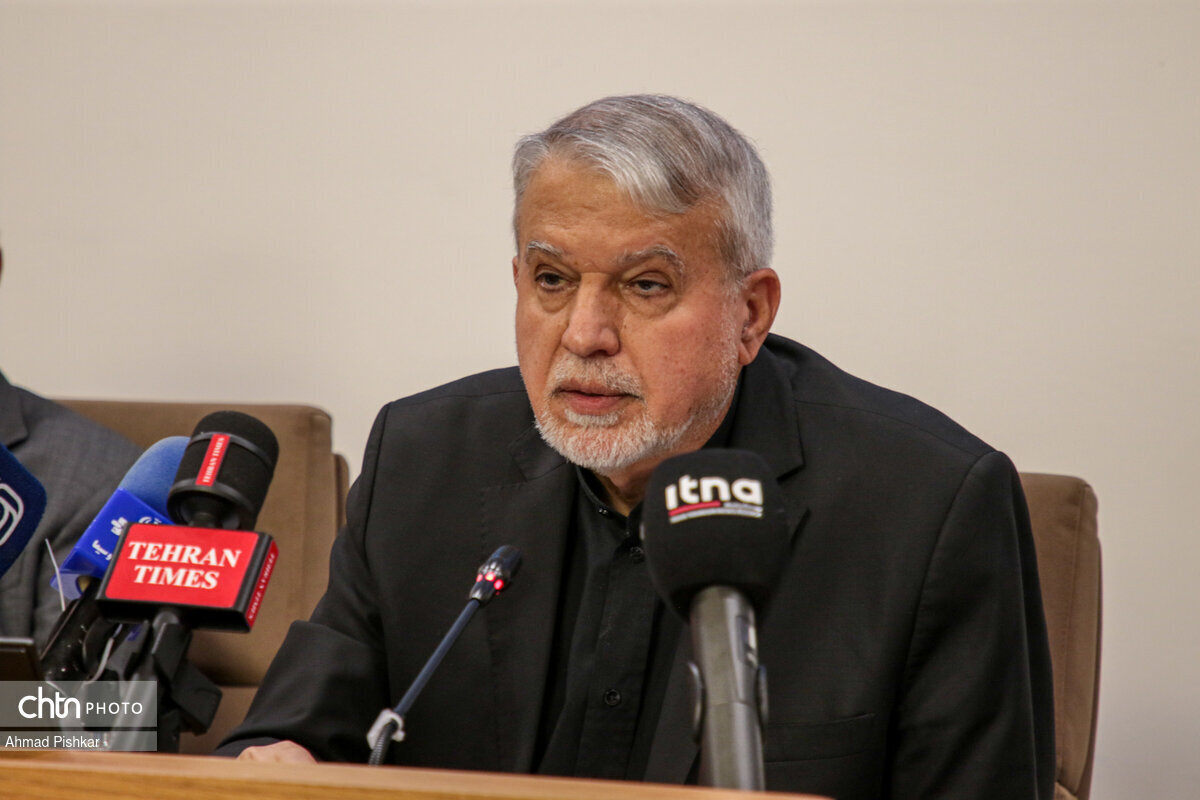Promoting a ‘safe and beautiful Iran’ is key to tourism development: minister

TEHRAN — Seyyed Reza Salehi-Amiri, Minister of Cultural Heritage, Tourism, and Handicrafts, underscored the importance of presenting an accurate and positive image of Iran on the international stage as the first step toward developing the country’s tourism industry.
Speaking at a gathering of tourism managers and officials on Monday, he said that Iran is one of the most secure nations, but sometimes the Western media portray a false image of Iran, Miras-e Arya (CHTN) reported.
“We must always highlight the term ‘safe Iran’ so that the reality of our country is accurately reflected.”
He emphasized the necessity of developing a desirable tourism governance model, and said: “We must plan for the future of this industry with a long-term perspective.”
“We need a favorable tourism governance model that can determine the direction of the industry's development for at least the next 20 years.”
This model should be designed by utilizing the capacity of elites and experts in various fields so that the role of tourism as one of the pillars of the country's cultural economy can be further strengthened on the path to realizing the smart governance, he added.
Pointing to the valuable experiences of Deputy Tourism Minister Anoushirvan Mohseni-Bandpei, he said: “Mr. Mohseni Bandpei is a capable manager familiar with the country's administrative system, and has a successful management record. I am sure that with his presence, the future of Tourism Department will be brighter and promising.”
Pointing to the formation of tourism content production movement across the province, he said that fortunately, the process of producing targeted content in the field of tourism has begun in 31 provinces of the country.
The first joint product between media and artistic activists has also been completed, and its results are promising, he said, adding that coordination between provincial public relations and Tourism Department must be strengthened so that the flow of information can be more coherent and professional.
Referring to the international conditions and the need for scenario planning in the field of tourism, he said: “In the current situation, we must examine different scenarios and have a specific version for each one. This measure guarantees the sustainability and readiness of the tourism industry in any situation.”
He also explained the priorities for attracting foreign tourists: “Our four main axes include the neighboring countries, Central Asia and the Caucasus, the Persian Gulf countries, and densely populated Muslim countries. These regions have special geopolitical and cultural importance for Iran.”
Emphasizing the need to pay attention to the quality of tourism services, Salehi Amiri noted: “We must move away from quantity and think about the quality of travel.
Supervision of accommodation centers, hotels, and tourism services must be strengthened. Also, the government's transition from ownership to handing over affairs to a capable private sector is our main approach.”
Referring to the role of Iranians abroad in tourism development, he added that Iranians living abroad have the greatest capacity to introduce and promote the country's culture and attractions.
The ground must be provided for building trust and facilitating their travel to the homeland in order to strengthen their cultural and economic ties with the country, he added.
In conclusion, he emphasized the importance of paying attention to the ministry's human resources and said: “Our three main strategies for employees include improving their status, improving their livelihoods, and strengthening job security. These three axes are seriously on the ministry's agenda, and their realization is one of our management priorities.”
KD
